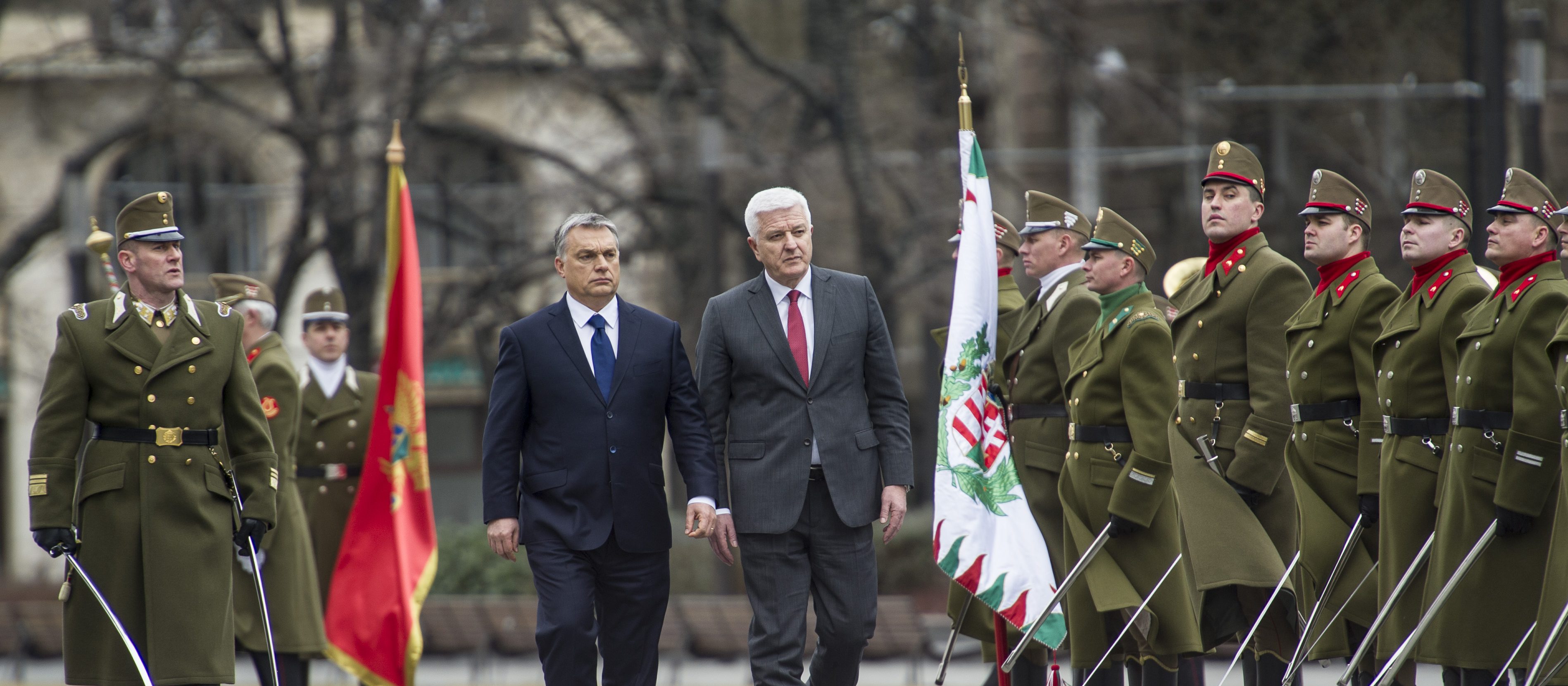
In his statement to the press, Mr. Orbán said: “If our hands were not tied and we were not slowed down by internal problems in the EU, Montenegro would to all intents and purposes be in the antechamber, or just a single step from full membership”. He confirmed that “The Hungarian government thinks it would be fair for Montenegro to join the EU as soon as possible”.
The Prime Minister also pointed out that Montenegro’s NATO membership need only be ratified by four remaining member states.
Hungary has supported Montenegro’s EU and NATO membership from the very beginning, “on principle, and in view of our similar histories”, the Prime Minister declared, adding that “The peace and security of the continent cannot be established without the peace and stability of the Balkans – which in turn can only be achieved through membership of the EU and NATO”.

The Prime Minister said that Friday’s talks had been friendly and successful, and he stressed that “The relationship between the two countries is not burdened by any difficulties. Hungary regards Montenegro as a successful country, which could be the destination for many investments and tourists from our country”.
“Hungarian investments in Montenegro are particularly successful”, he continued, indicating that the coming decade will be one of Hungarian investments in the Balkan region, and Montenegro is a priority target in this regard.
In closing Mr. Orbán indicated that he had accepted his Montenegrin counterpart’s invitation to visit Podgorica.
Prime Minister Marković thanked the Hungarian government for its support for Montenegro’s accession to the EU and NATO.
He indicated that Montenegro expects the final four countries to ratify its accession to NATO soon, meaning that the country could take part in the next NATO summit in May as its 29th member state.
On the subject of EU integration, Mr. Marković said that the most important thing is that the accession process should not slow down.
The Montenegrin prime minister said that the main goal of his country’s foreign policy is to maintain peaceful relations with its neighbours, adding that they are believers in dialogue and want to strengthen Western Balkan cooperation.

Mr. Marković characterised Hungarian-Montenegrin relations as outstanding, and called for the two countries’ joint economic committee to hold a meeting as early as possible. He also welcomed the opportunity of receiving a 45 million euro credit line from Hungary’s Eximbank to facilitate cooperation between Hungarian and Montenegrin enterprises.
Prior to the press conference, three agreements were signed in the presence of the two prime ministers. One concerns the launch of a direct passenger air route between Budapest and Podgorica, which was signed by Minister of Foreign Affairs and Trade Péter Szijjártó, and which Prime Minister Viktor Orbán said could begin operating as early as this spring. A second agreement was a memorandum of understanding on cooperation between the two countries’ ministries of interior, which was signed by Minister of Interior Sándor Pintér for the Hungarian government. Finally, the two interior ministers also singed a protocol between Hungary and Montenegro on implementation of the agreement between the European Community and Montenegro on reaccepting people without residence permits.
